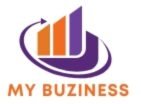Launching a startup requires smart investments in tools that maximize productivity while minimizing costs. In 2024, the selection of an appropriate software stack can significantly impact a startup’s ability to navigate operations effectively and scale efficiently. This comprehensive guide covers the best free and paid business software across essential categories, from accounting and project management to marketing and customer support— giving your startup the competitive edge it needs.
1. Accounting & Finance Tools
Free Option: Wave Financial
Wave offers completely free invoicing, accounting, and receipt scanning with no hidden fees. This service is ideal for startups that are bootstrapped and require basic financial tracking without the need for complex features.
Paid Option: QuickBooks Online ($30/month)
It is considered the gold standard for small business accounting, offering automated expense tracking, tax preparation, and cash flow forecasting. Scales perfectly as your startup grows.
2. Project Management Solutions
Free Option: Trello
Trello’s visual Kanban boards provide intuitive task management for small teams. Limited automation in free version but excellent for basic project tracking.
Paid Option: ClickUp ($7/user/month)
It is an all-in-one workspace that combines project management, docs, goals, and time tracking. Advanced features like custom workflows and AI-assisted writing justify the cost.
3. Communication & Collaboration
Free Option: Slack (Free Plan)
It offers real-time messaging, file sharing, and limited app integrations. Free version retains message history for 90 days.
Paid Option: Microsoft Teams ($4/user/month)
This complete collaboration suite features video conferencing, Office 365 integration, and enterprise-grade security. Ideal for startups already using Microsoft ecosystem.
4. CRM Software
Free Option: HubSpot CRM
This is a powerful free CRM that features contact management, email tracking, and deal pipelines. The basic features are limited to a maximum of 1 million contacts.
Paid Option: Salesforce ($25/user/month)
It is an industry-leading CRM that offers advanced sales forecasting, marketing automation, and AI insights. Steeper learning curve but unmatched scalability.
5. Marketing Automation
Free Option: Mailchimp (Free Plan)
Email marketing for up to 500 contacts with basic automation. Excellent starting point for early-stage customer outreach.
Paid Option: ActiveCampaign ($29/month)
Combines email marketing, CRM, and sales automation with powerful segmentation and behavioral tracking.
6. Design & Creativity Tools
Free Option: Canva
The platform is user-friendly and offers thousands of templates for graphic design. Free version includes basic stock photos and design elements.
Paid Option: Adobe Express ($9.99/month)
Professional-grade design tools with premium templates, advanced editing features, and brand kit functionality.
7. Website Builders
Free Option: WordPress.org
The platform is open-source and offers endless customization through the use of free plugins and themes. Requires web hosting.
Paid Option: Webflow ($14/month)
Visual website builder combining design flexibility with CMS capabilities. No coding needed for professional results.
8. Customer Support Software
Free Option: Zoho Desk (Free for 3 agents)
Help desk solution with ticket management, knowledge base, and basic automation.
Paid Option: Intercom ($74/month)
Conversational platform combining live chat, bots, and help center with powerful customer data integration.
9. Document & E-Signature Tools
Free Option: DocuSign (Free for 3 documents/month)
Basic electronic signature functionality with mobile signing capability.
Paid Option: PandaDoc ($19/user/month)
Complete document workflow solution with templates, approval processes, and payment collection.
10. Analytics & Business Intelligence
Free Option: Google Analytics
Essential web analytics with audience insights and conversion tracking.
Paid Option: Mixpanel ($25/month)
Advanced product analytics focusing on user behavior and retention metrics.
Conclusion: Building Your Optimal Software Stack
The right software combination depends on your startup’s specific needs and growth stage. Consider starting with free tools to validate your business model, then strategically upgrade to paid solutions as your operations scale. Many paid options offer startup discounts or free trials – take advantage of these to test before committing.
Remember that the most expensive tools aren’t always the best fit. Focus on solutions that integrate well together and address your most pressing operational challenges. As your startup evolves, regularly reassess your tech stack to ensure it continues supporting your growth trajectory.




